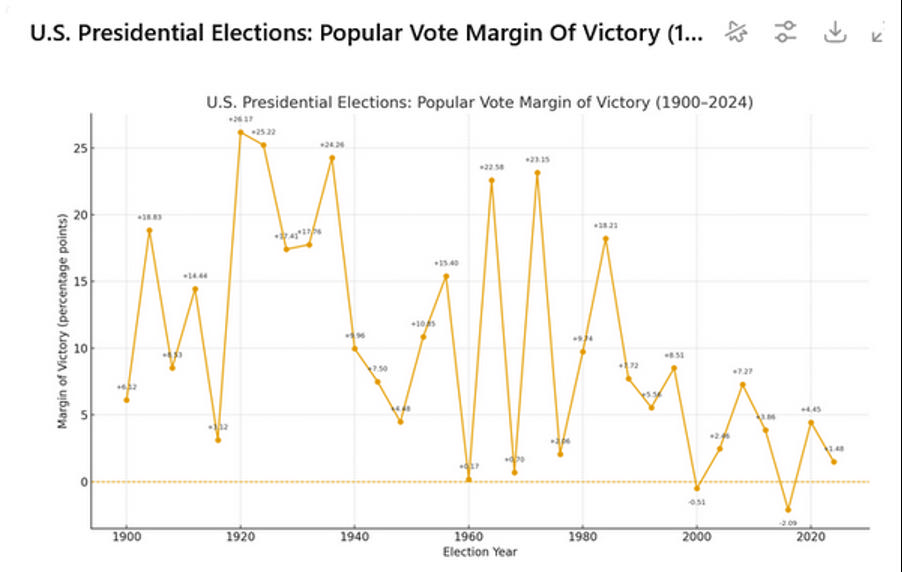Living with Eyes of Hope
How Christians Should Respond When the News Is Depressing

There are times when it feels like the media produces such a waterfall of toxic sludge that one would need a hazmat suit to keep informed about current events. There are times when it seems that nearly every story relates to some act of violence or corruption, some words of enmity or folly. There are times when a Christian in America today can feel like Lot in Sodom, “tormenting his righteous soul over their lawless deeds that he saw and heard” (2 Peter 2:8). There are times when depressing news tempts us to despair, to tune it out, to withdraw from an evil world — but we must resist that temptation.
Recent disturbing reports can make it feel like one of those times. As the nation still reels from two independent acts of politically motivated left-wing violence — the August 27 Annunciation School shooting and the September 10 assassination of Charlie Kirk — it sustained two more shooting incidents apparently motivated by left-wing political views since recently.
On September 19, a leftist in his 60s allegedly sprayed bullets at an ABC news station in Sacramento during the (brief) suspension of ABC late-night host Jimmy Kimmel, who was disciplined for grotesquely distorting the truth about Kirk’s killing. The suspect left a note in his car that appeared to threaten other Trump officials with assassination, “For hiding Epstein and ignoring red flags. Do not support Patel, Bongino, and AG Bondi. They’re next.” The note was signed “CK [Charlie Kirk?] from above.”
On September 24, an Immigration and Customs Enforcement (ICE) facility in Texas came under attack by a gunman who shot three detainees (one fatally) before dying from a self-inflicted gunshot wound. Lest anyone should mistake his motive, the shooter etched “anti-ICE” into an unfired bullet casing. This was the third armed attack this year against federal immigration and border officials in Texas, not to mention the harassment they have faced in Los Angeles and elsewhere. It was also the third incident in the past month (after the Annunciation shooting and the Kirk shooting) where a left-wing gunman etched a political message into his ammunition.
This would be a depressing record of politically motivated violence for any year, let alone a single month. And many Americans have been shaken to the core. According to a Quinnipiac poll taken after Kirk’s assassination, 79% of U.S. voters believe the U.S. “is in a political crisis,” to the point that 53% believe “the system of democracy in the United States is not working.”
Those who have lost faith in America’s system of government are led by (74% of) self-identified Democrats, who have worked themselves into a panic that the Trump administration will end representative government as we know it. For instance, California Governor Gavin Newsom (D) said on September 23, “I fear that we will not have an election in 2028.” It’s quite plausible to see how such fears, and such rhetoric, could mislead a person who believes them into acts of politically motivated violence.
Thus, Quinnipiac also found that 71% of Americans “think politically motivated violence in the United States today is a very serious problem,” 82% “think the way people talk about politics these days is contributing to violence,” and 58% “think it will not be possible to lower the temperature on political rhetoric.”
To summarize: partisans on both sides (for different reasons) fear that America is in a political crisis, that political violence is not going away any time soon, and even that the continued viability of America’s system of government is in jeopardy. And news cycles are regularly reinforcing these fears by providing fresh examples of political violence (or, for those on the Left, fresh examples of what they interpret to be Trumpian abuses of power).

That’s enough to alarm anyone, even to drive them to the brink of despair. But the ever-rising tide of evil does not alarm Jesus, so it should not alarm his followers.
Indeed, Jesus predicted that “wars and rumors of wars” — a state of violence far surpassing the current stochastic terrorism — would precede the end. “See that you are not alarmed,” he told his disciples, “for this must take place, but the end is not yet” (Matthew 24:6). Even worse, the last days would include persecution (24:9), apostasy (24:10), betrayal (24:10), hatred (24:10), and deceptive false prophets (24:11). “And because lawlessness will be increased, the love of many will grow cold,” he concluded. “But the one who endures to the end will be saved” (Matthew 24:11-12).
That is what anchors the Christian: “the end.” Beyond the daily news cycle, in which horror succeeds horror at a breathtaking rate, is the day when God will bring every deed into judgment, when Jesus will finally establish his kingdom, and when those who repent and believe will dwell with him forever. Yes, the world is full of evil, Christians can acknowledge; but it is passing away.
This future focus should affect the way Christians live today. “Since all these things are thus to be dissolved, what sort of people ought you to be in lives of holiness and godliness, waiting for and hastening the coming of the day of God,” writes Peter (2 Peter 3:11-12).
Notice the two pairs of characteristics. First, Christians should live holy and godly lives, renouncing sinful patterns and cultivating spiritual virtues that reflect God’s good character. This includes the duty for Christians to love their neighbor, which includes engaging in our society — yes, and even in politics — for the good of people made in God’s image. Second, Christians should both wait for and hasten Jesus’s return. Based on the context, where Peter writes that the Lord is “not wishing that any should perish, but that all should reach repentance” (2 Peter 3:9), hastening Christ’s return likely means evangelizing the lost. But waiting is also important: we cannot usher in the kingdom through any act of ours; we must simply live faithfully, holding onto faith amid the darkest tribulations.
This sounds difficult, and it is even more difficult than it sounds. But the Holy Spirit empowers us to do just this, by pointing our eyes to the next world. “But according to his promise we are waiting for new heavens and a new earth in which righteousness dwells” (2 Peter 3:13). How should Christians respond when depressing news tempts us to despair? We should set our hope on the eternal life that God has promised and keep walking faithfully.
*Published by The Family Research Council at frc.org (1-800-225-4008; 801 G Street, NW, Washington, D.C. 20001) Authored by Joshua Arnold on September 25, 2025.

Joshua Arnold
Joshua Arnold is a senior writer at The Washington Stand, contributing both news and commentary from a biblical worldview.

















